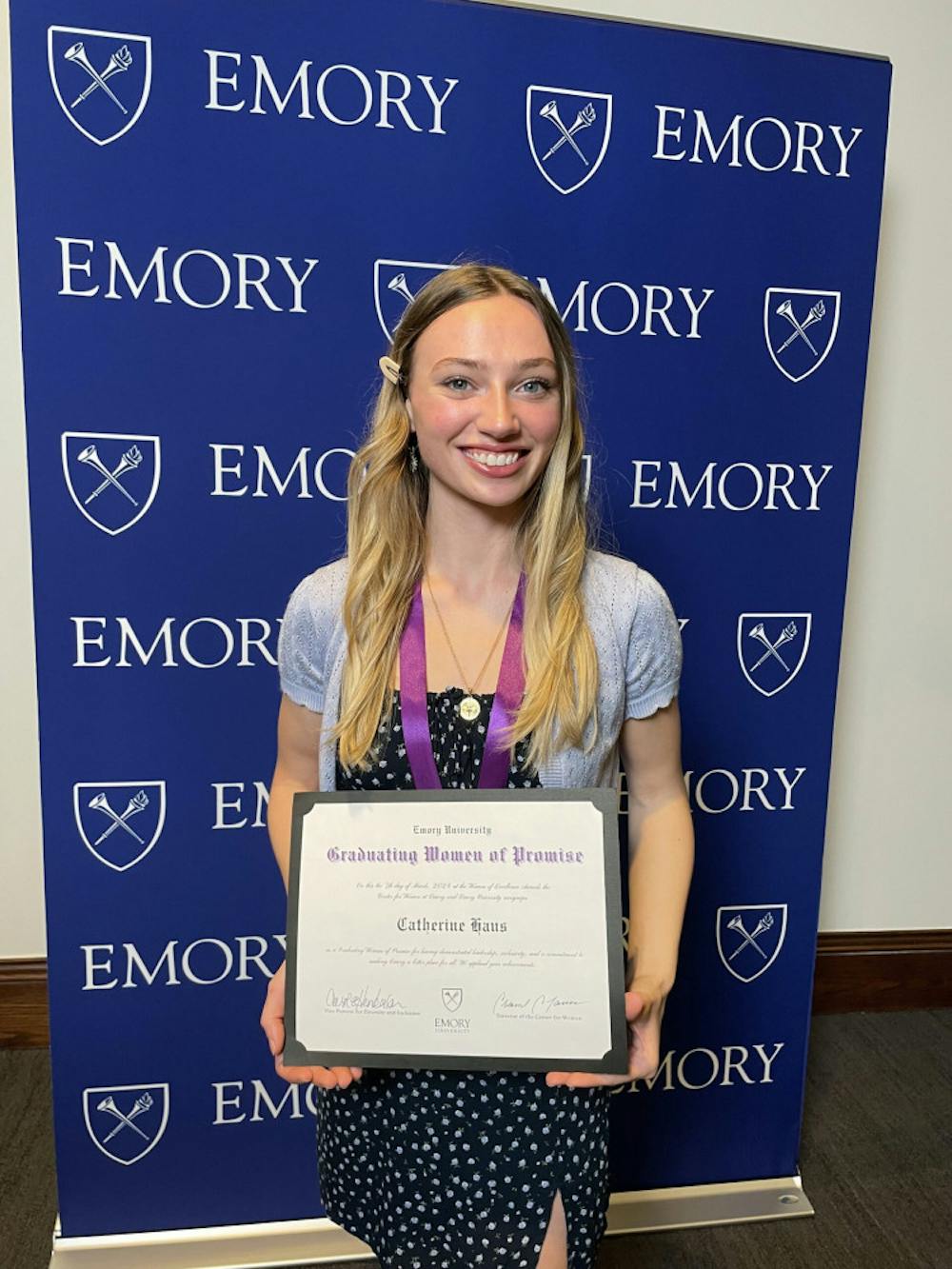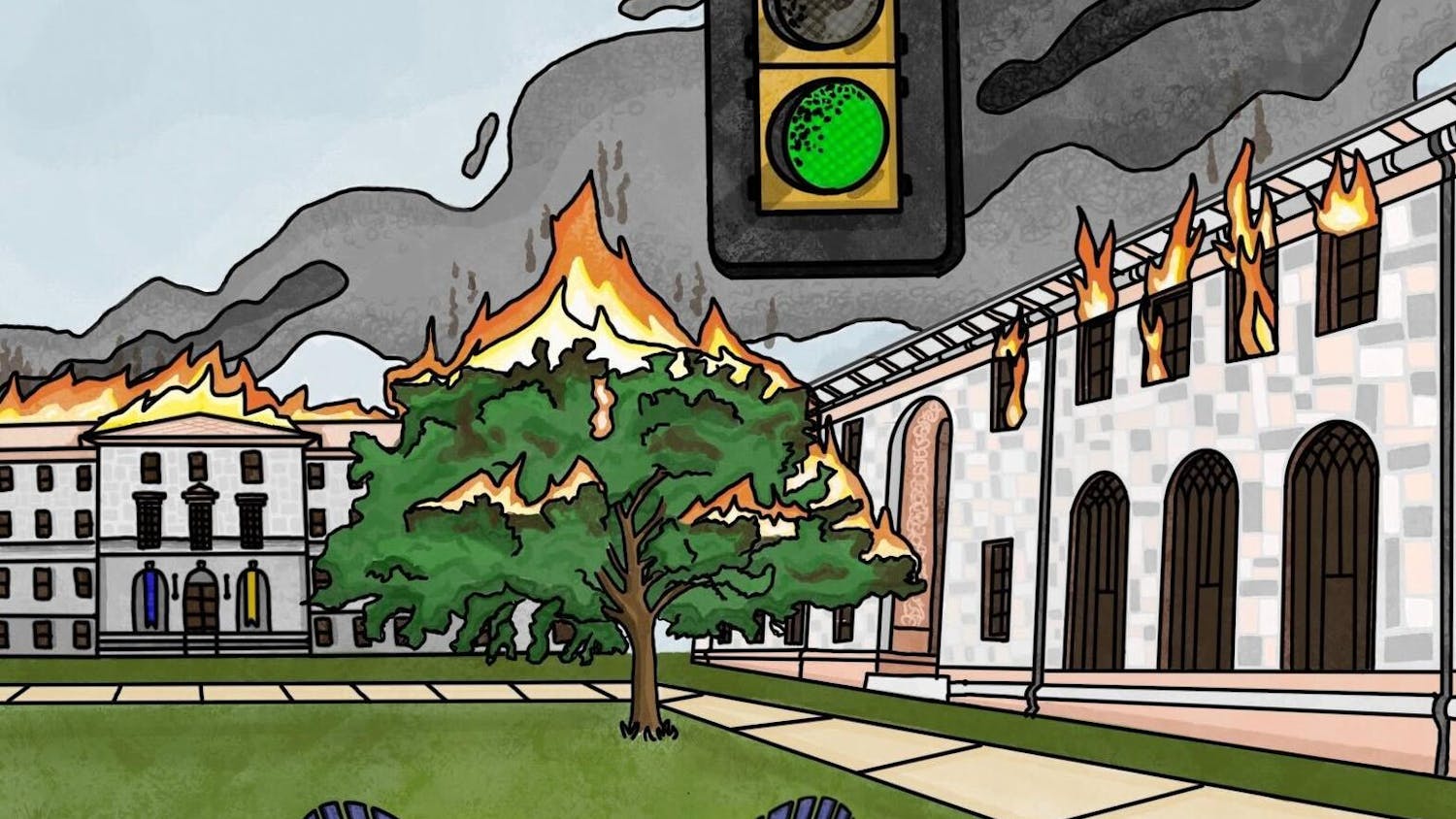
Emory University students always ask me, “Is there anything to do in Iowa?” To this day, I usually reply with jokes about cornfields and our nation’s largest skatepark, but I’d like to officially close this case.
When I envision Iowa, I see rolling plains, perfectly flat bike trails and barred owls. I think of boiling summers and snow-kissed oak trees in winter.
As a Midwestern native, my fondest childhood memories are of exploring old-growth forests with my brother, picking up litter around my neighborhood (yes, for fun), catching frogs, watching my dad tend to flora and fauna and watching the bumblebees and hummingbirds with my mom. I was always a feisty outdoors-oriented child.
I arrived at Emory knowing that I wanted to study environmental science. Despite my sense of certainty regarding my path, I faced health and subsequent academic challenges as an underclassman. I let shame overcome my ability to ask for help. But, even amid my darkest hours, my burning love for nature kept me going.
Throughout my time here, I spent countless hours meandering through Lullwater Preserve, hammocking and relaxing on the quadrangle with my friends Ruby Stillman (24C) and Elif Gencer (24C). I swam in Georgia waters and picked strawberries and lavender with loved ones, Anna Pomahac (24C), Fareed Khan (24C) and Rayna Weitzman (24C). I hiked trails with my boyfriend, Ken Dorazio (24C), and bonded with fieldmates like Natalia Freeze (25C) through mind-blowing outdoor excursions.
Nature has been both my classroom and my escape. As a part of Ecology of the Tropics with Dr. Larry Wilson, Adjunct Professor of Environmental Sciences, I caught and ate red-bellied piranhas, learned ethnobotany from an indigenous Shaman in the Amazon Rainforest and held a rehabilitated baby woolly monkey at La Isla de Los Monos in Loreto, Peru. I pushed my body to the limit and challenged myself in ways I never could have imagined.
With much trial and error, I learned the power of believing in myself and of viewing failure as an opportunity for improvement.
When I think of Emory — and when I think of myself — I think of sweet Mother Earth. This rock remains the one place we have always called home. Thus, I made it my personal mission to engage with climate diplomacy, climate action with partners worldwide, as an upperclassman.
I was honored to be selected by incredible leaders, Winship Distinguished Research Professor of Environmental Sciences Eri Saikawa and Environmental Sciences Undergraduate Programs Coordinator Leah Thomas, to attend the United Nations’ 28th COP in Dubai, United Arab Emirates on behalf of Emory. COP is a supreme decision-making and governing body established by the United Nations Framework Convention on Climate Change (UNFCCC). The COP meets every year in one of the five recognized U.N. regions.
At COP28, I was interested in side events, external knowledge-sharing and capacity-building exhibits, on sustainable agriculture (I’ll permit some Iowa jokes here), air pollution and coastal resilience. I interviewed the United States Department of Agriculture’s chief scientist, a youth from Hawaii who installed the first reusable water bottle stations on her island and spoke with COP28 President Dr. Sultan Al Jaber. I overheard dozens of languages, spoke with attendees inhabiting all continents and walked over 20,000 steps per day. I even got to put my Emory-acquired Italian skills to use with the Italian delegates. COP28 allowed me to interact with world leaders and people on the frontlines of climate disasters. My experience would not have been possible without Emory, its community and its resources.
From my time in Dubai, I learned that nothing in this world can be accomplished alone. I not only learned from COP28 panelists and plenary delegates, but also from my Emory peers. Together, we overcame our fatigue, a sense of hopelessness in the face of a warming planet. These lessons from Dubai reignited my hope back on campus. I no longer feel doomed when discussing climate change in the classroom — I feel inspired to collaboratively tackle issues.
After attending COP28, I reflected on the myriad of skills each attendee brought to the table, such as political communication, scientific expertise and journalism. Since my return, I tested soils for heavy-metal presence with the Saikawa Lab and forged bonds with community members. I built a Machine Learning model to improve air quality sensor readings with Dr. Alex Avramov, Associate Professor of Environmental Sciences. COP28 gave me a new wave of inspiration to make the accuracy of low-cost air quality sensors match that of high-cost sensors.
Emory gifted me life-changing experiences that solidified my passion for nature. The Earth is worth protecting. And, trust me, there’s more to nature than just fields of corn.
As we depart, I wish everyone relaxing moments immersed in the outdoors. I dream of a just future, one that is written by the youth of this vast world. I am so grateful to my classmates for our shared laughs, hardships overcome and the courage you all have instilled in me to search for meaning.
Catherine Haus (24C) is from Des Moines, Iowa and majored in environmental sciences on the social science and policy track and minored in quantitative science. During her time at Emory, she worked as the co-president of Emory American Sign Language Organization, a research assistant in the Saikawa Lab and pianist for a disabled youth in Atlanta. After graduation, she will be an environmental scientist at Newfields, an international environmental, engineering and construction consulting firm. After a few years of work, Catherine plans to pursue a Ph.D. in environmental sciences.









